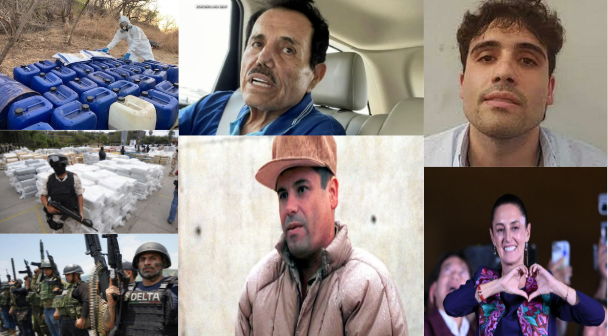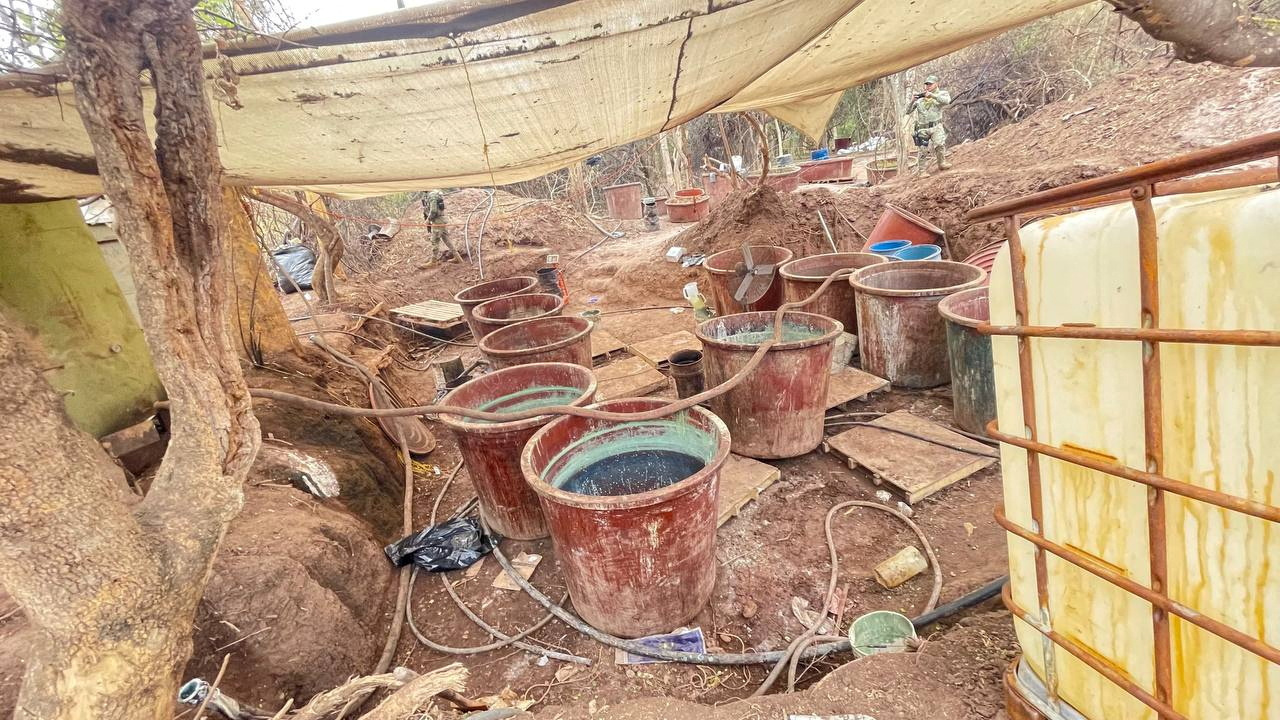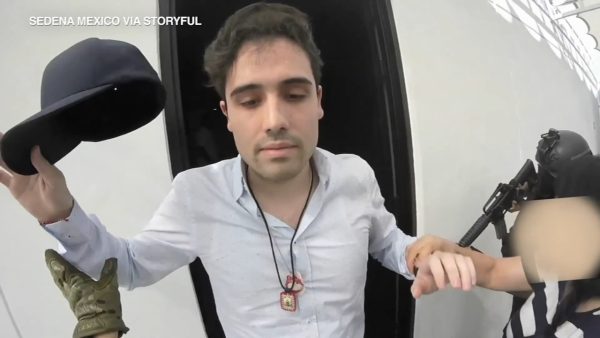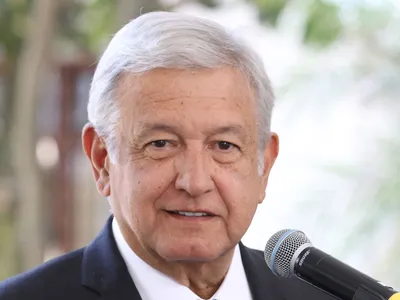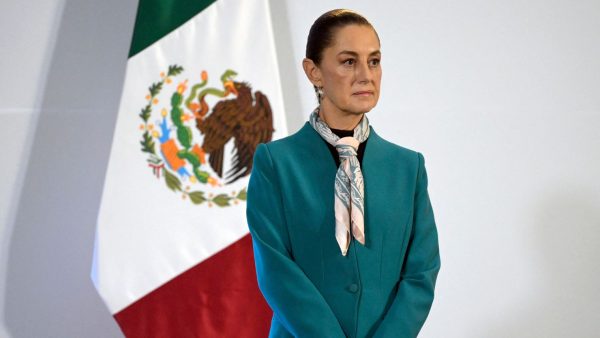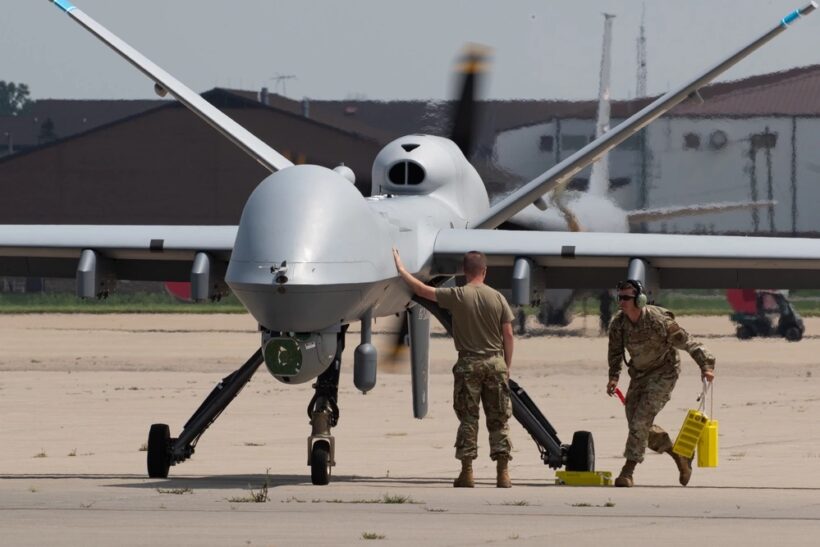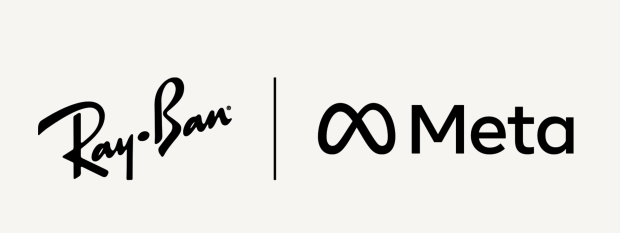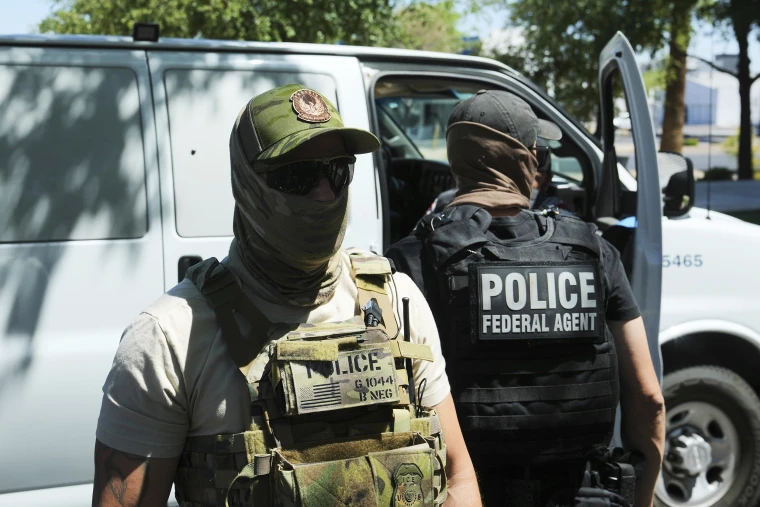At the California-Mexico border in the fiscal year of 2024, 2,862 pounds of cocaine and 782 pounds of fentanyl were seized by San Diego authorities. Within just 4 months of the fiscal year of 2025, authorities have already seized 900 pounds of cocaine and 150 pounds of fentanyl. For the past 53 years, America has been continuously fighting to bring an end to this issue, which Richard Nixon named “The War on Drugs”. Donald Trump recently brought more attention to the War on Drugs by choosing to designate drug cartels as terrorist organizations, which would give America the right to send troops to Mexico. This new approach to the situation in Mexico has caused many people, including Cartel members, Mexican Authorities/Government officials, and U.S. Government officials, to speak on the topic, provide plans, and share opinions.
Cartel:
9 Latin drug cartels were named as Specially Designated Global Terrorists by the Department of State on February 20, 2025, including Mara Salvatrucha Trece (MS-13), Cartel de Sinaloa, Tren De Aragua (TdA), Cartel de Jalisco Nueva Generacion (CJNG), La Nueva Familia Michoacana (LNFM), Cartel de Golfo (CDG), and Carteles Unidos (CU). Recently, Cartel de Jalisco has been under investigation after an alleged death camp was found containing 200 pairs of shoes, industrial ovens, children’s toys, and bone fragments on one of their ranches. According to the BBC, activists said the site was used for the recruitment and training of Cartel soldiers and the torturing and killing of victims, which are then cremated. Recently, two ex-police officers were arrested with an alleged connection to the CJNG ranch, and one of them has been accused of kidnapping a man at a search checkpoint, then turning him over to be taken to the ranch.
Large meth lab seized in northern Sonora
Cartel de Jalisco Nueva Generacion has the most media coverage out of any drug cartel right now. Still, another drug cartel is also holding power over police departments, civilians, the military, and the government in Mexico. The Department of State has described Cartel de Sinaloa as “One of the world’s most powerful drug cartels and is one of the largest producers and traffickers of fentanyl and other illicit drugs to the United States”. The Department of State also said that over the years, Cartel de Sinaloa has used murder, violence, and kidnappings to strike fear into police officers, politicians, and journalists. There are a few different sections of the Sinaloa Cartel, including the enforcer and hit unit, Los Antrax, named after the fatal bacterial infection Anthrax.
I had the rare opportunity to ask questions to an anonymous source, a Los Antrax foreman. I asked them about the overall environment of Sinaloa, and they said, “Right now it’s super dangerous to the point where landing in the Culiacan airport is dangerous. You walk out and there’s a chance of being shot because Culiacan is the main city in Sinaloa it’s also becoming normal to see/find bodys or body parts as well as going down foreign roads with no lights or one ways are normally trapped now all because they didn’t hold up there side of the agreement”. When my source says “they”, this is about the U.S. Government who agreed to release one of the creators of the Sinaloan cartel Ismael ‘El Mayo’ Zambada in exchange for drug lord Joaquin ‘El Chapo’ Guzman’s son Ovidio Guzman Lopez. The U.S. Government, as previously stated, allegedly failed to uphold its end of the agreement, leading the Cartel to become more cautious and establish additional checkpoints. My source went onto state their opinion about how things are being handled and how they feel about President Trump labeling them as a terrorist organization by saying “Now personally my thoughts are there is a more effective way of getting what we want, but I also feel like that’s part of the reason we got marked as terrorist apart from it being a way for America to do something because before American forces couldn’t get involved in what we do but now with the destruction they see we can cause they could mark us as terrorists”. My source ended the formal question by going back to the environment of Sinaloa saying “It is overall dangerous, last time I went I saw bloody hand prints on a wall as soon as I hit the city and I still hadn’t gotten to work”.
El Chapo’s son Ovidio Guzman being arrested
To gain a deeper understanding of the thought processes of cartel members, I requested that my source pose questions to another member of Los Antrax. He agreed to this and talked to a hitman for Los Antrax. My source asked the hitman, “What are your views on Trump’s labeling of cartels as terrorist organizations? And what are your views on Trump’s mass deportations?” The hitman responded by saying, “Cartels as terrorist organizations is just a political maneuver to mobilize their base. Of course, it sounds strong, but we already operate outside the laws of the United States and many other countries, so labeling us doesn’t really change the way we operate. We’ve been dealing with authorities for a long time. A title won’t change anything. We already have people on the inside, so it’s nothing new. As for mass deportation, it’s more of the same—targeting vulnerable people at the border, separating families. Many cartel members, including those at the top, come from places where the government doesn’t even have control. So deporting people doesn’t solve anything. It might only make the situation worse for those involved, but it doesn’t affect us. We have ways to deal with people and get them where we need them to be, regardless of the laws and law enforcement. In the end, all these policies are just noise; they don’t really affect us on a larger scale. We are too deeply embedded in the system for the words or policies of a single person to take us down. It’s a game to us, and Trump is simply playing it like those before him.” He has made his stance clear in this questioning that he feels Trump’s deportations and labeling them as terrorist organizations will not have an effect on the Sinaloa Cartel.
These are just the members I was able to speak to, but an article from The New York Times includes quotes from members of the Cartel de Sinaloa who have expressed their concern about the busts being carried out by the Mexican authorities. A high-ranking member said anonymously, “You can’t be calm, you can’t even sleep, because you don’t know when they’ll catch you,” and further added, “The most important thing now is to survive”. Overall, the cartels are dealing with intervention from U.S. and Mexican authorities and have had to deal with the consequences of that.
Mexican Officials:
People working with the cartel aren’t always out on the streets killing and selling drugs; cartels across Mexico have provided bribes to police officers and politicians to avoid police interference. In 2024, the security chief of Mexico, Genaro Garcia Luna, was found guilty in a U.S. federal court and sentenced to 38 years in prison for accepting bribes from Mexican drug cartels. Police corruption is widespread in the lower rankings aswell, in 2024, 92 municipal officers in the Mexican state of Chiapas were arrested after pulling guns on state officials that were trying to access a surveillance center that the police officers were utilizing to supply information to groups allied with the cartel about raids that could hit them. The officers were taken into custody and held on charges of rioting and abuse of authority.
Not every politician or authority figure in Mexico is corrupt, though, as the president is attempting to dismantle the cartels. The previous Mexican president, Andres Manuel Lopez Obrador, had a policy he named “hugs not bullets,” which was used to focus on eliminating the factors that cause drug cartels, such as poverty. He was against fighting drug cartels with violence, as he felt that it would only cause more violence. When the current president, Claudia Sheinbaum, stepped into office, she seemed to continue the “hugs not bullets” policy. Still, a few months into her office, she ordered the most extensive military, naval, special forces, and heavy weaponry deployment in Mexico in the past six years.
Former President Obrador
Sheinbaum has made it clear that she will not allow the invasion of Mexico by the United States and said, “This cannot be an opportunity for the U.S. to invade our sovereignty, with Mexico, it is collaboration and coordination, never subordination or interventionism, and even less invasion.” She has doubled down on her stance against U.S. labeling cartels as terrorist groups by declaring she will pursue legal action against American gun makers because the U.S. Justice Department said 74% of weapons criminal groups use are from the United States. She wants to show America that she will not tolerate an invasion and will do her best to prevent it from happening.
President Sheinbaum
U.S. Officials:
Donald Trump made an address to Congress on March 4th and stated, “The cartels are waging war on America, and it’s time for America to wage war on the cartels.” This statement came only a couple of weeks after he designated Latin American cartels as terrorist organizations. Tariffs have been imposed on Canada and Mexico by America to force them to help with the fight against cartels. Trump’s designation is supposed to be used to weaken the cartel’s finances. In March, the U.S. Treasury sanctioned six people and seven companies on suspicion of money laundering. The sanctions will prohibit any person or company from conducting business with those individuals or entities that are sanctioned.
The CIA has begun surveillance of Mexico using unarmed drones to fly over the nation to pinpoint cartel-occupied areas. According to the LA Times, Todd Zimmerman, a special agent for the DEA, has applauded the work of President Sheinbaum and said, “We’ve seen an uptick in operations since Claudia’s taken over as president here, which is a very positive sign.” Even the Defense Secretary Pete Hegseth said in January that “all options will be on the table” in response to being asked if the Military is allowed to strike Mexico. Other officials have been opposing Trump’s new policies, such as Mike Vigil, the former head of international operations at the DEA, who has been critical of the policies. He claimed, “The military aircraft, the troops at the border, the talk of drones: It’s all a flash in the pan, it’s not going to have an impact”. The political opinions of U.S. officials are mixed, making it unclear whether military intervention will occur or if support will be supplied solely to the Mexican government.
CIA Surveillance Drones

